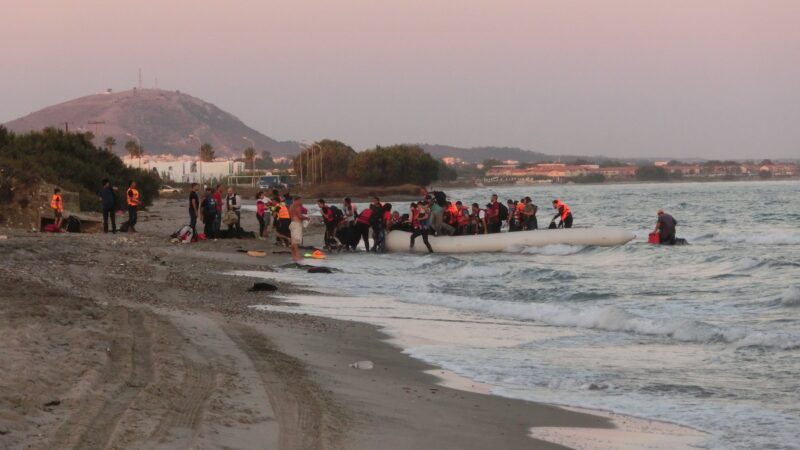The refugee crisis. Words are easy (and dangerous). Action is hard.

Obergrenze. It’s the word of the moment in Germany – namely should Germany set an upper limit on the number of refugees that it can take in 2016. CSU leader Seehofer wants to set it at 200000. The Austrians have agreed one (but there are questions if it can work), and CSU General Secretary says Germany ought to copy them – before drawing the ire of Jan Böhmermann for his statement. Any Obergrenze in Germany (or anywhere else) is almost certainly not legal.
The favourite lazy phrase in English is that the EU needs to secure its external borders. Everyone from Maltese opposition leader Simon Busuttil to German Finance Minister Wolfgang Schäuble uses the phrase.
But these words are all easy. And dangerous.
What does an Obergrenze mean in practice? It means that once one country has reached its limit, the refugees go somewhere else. One country’s Obergrenze is another country’s problem, and more refugees trooping around in awful conditions trying to find somewhere that will look after them. It’s like rationing lifesaving aids as this cartoon so aptly shows it, or as Die Zeit puts it, anyone saying Obergrenze must also say tear gas – for that’s what’s going to be needed at the borders if one were to be introduced. And that too may further endanger Schengen.
Securing the external borders is also equally inhumane. This basically means keeping refugees in the freezing cold on the other side (as Norway is currently doing in its arctic north) and will mean camps of tents or worse in the non-EU countries of the Balkans when that route becomes more active again when weather improves in spring. More importantly, what does that actually mean when applied to a sea entry point like at Lesvos? That overloaded boats are not allowed to land, and are sent back to Turkey, and people drown? If the EU means it when it says refugees need safety when fleeing war, the implication of securing the external borders is precisely the opposite – it keeps people who might need to come in on the outside.
Solving the refugee crisis, now just as six months ago or even eighteen months ago, is going to instead need one hell of a lot of hard, grinding, slow, difficult political action. It is going to need a concerted effort to achieve peace in Syria. A solid effort at state building and stabilisation in Libya, Eritrea, Afghanistan, Sudan and Somalia. Political and economic reform in Kosovo and Albania, still the source of 20% of refugees coming to the EU. Attempts to deal – politically, economically, militarily – with countries many in Europe would rather not approach – Turkey, Russia, Iran, Saudi Arabia – have to nevertheless be stepped up. Within the European Union the Dublin Regulation has to be reformed as a matter of urgency – otherwise all the refugees will end up being parked in regions of the southern European countries least capable of coping. A compulsory quota system for refugees has to be made to work – not because it is good per se, but because everything else is worse. Processing of asylum claims have to be processed one hell of a lot quicker than they are at present to speed up the economic and social integration of those arriving.
Yes, that action is hard, but without action there is no end to the crisis. Conversely words are easy, and dangerous.